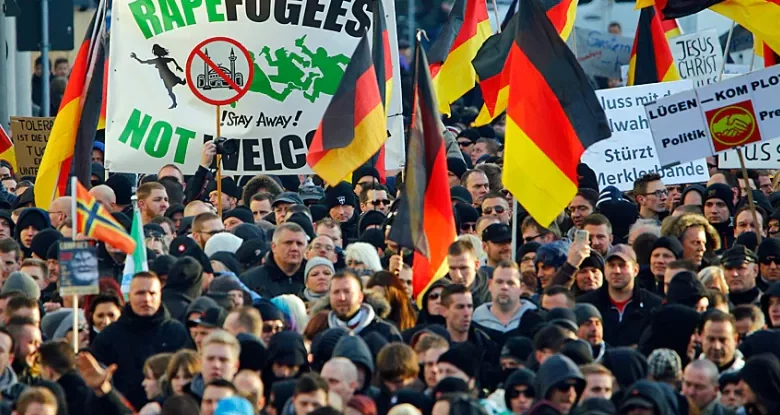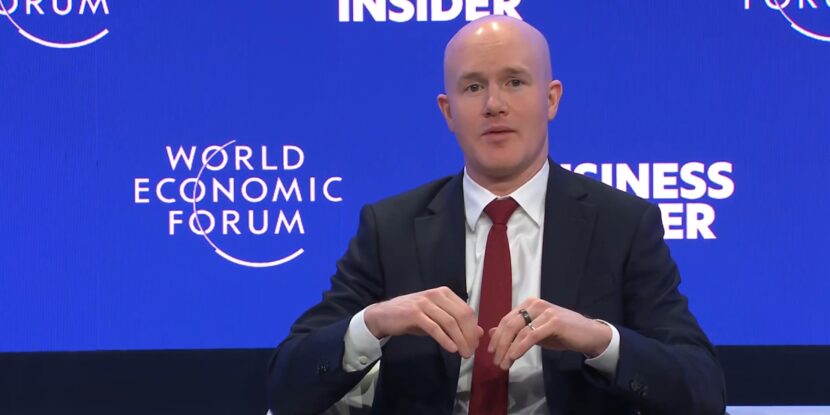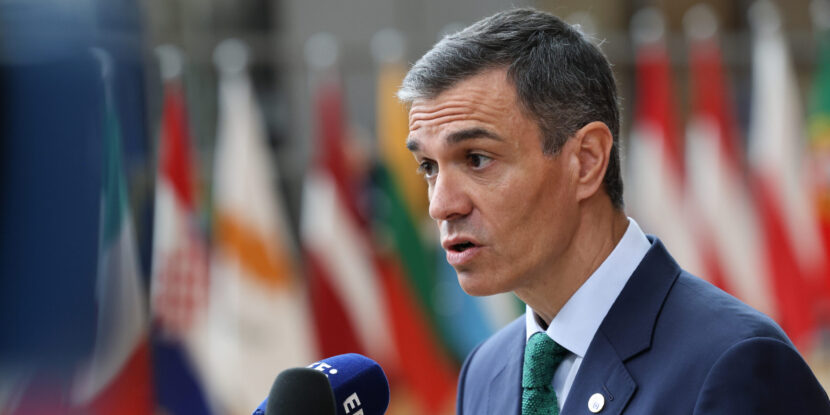Recent polling indicates a notable shift to the right among German youth, with the anti-mass migration Alternative for Germany (AfD) party now the most popular choice among 14- to 29-year-olds. This political trend appears to be influencing both electoral prospects and cultural expression just weeks before the European Union elections, with several instances of young people engaging with a reworked Eurodance classic featuring anti-foreigner lyrics.
The song, set to DJ Gigi D’Agostino’s “L’amour Toujours,” has resurfaced repeatedly, promoting the slogan “Deutschland den Deutschen, Ausländer raus” (“Germany for the Germans, foreigners out”). The latest incident occurred at an exclusive nightclub on the German holiday island of Sylt, drawing widespread attention on social media.
A video circulating on social media depicts young men and women dancing and singing the contentious lyrics. German media have debated whether their gestures are merely dance moves or potentially Nazi salutes. Die Welt reports that Germany’s federal security police, typically focused on terrorism and international crime, are now investigating these activities.
Incredible things are happening in Germany pic.twitter.com/aJVVBjfgIY
— ɖʀʊӄքǟ ӄʊռʟɛʏ 🇧🇹🇹🇩 (@kunley_drukpa) May 23, 2024
Ferda Ataman, Germany’s Federal Commissioner for Anti-Discrimination, described the song as “pure racism,” asserting that it represents escalating discrimination. Green Party Integration Minister Aminata Touré echoed these concerns, calling for criminal investigations and describing the behavior as “Nazi yelling.”
The resurgence of this song highlights growing right-wing sentiments. Bayerischer Rundfunk (BR) has noted that similar clips have appeared frequently at discos and festivals across the country. Despite the backlash, it remains a symbol of a broader cultural shift within the youth demographic.
Support for the AfD among young Germans has surged, with recent research showing a significant increase in party preference among the 14- to 29-year-old cohort. Professor Klaus Hurrelmann has attributed this shift to growing pessimism and anxiety about the future, noting a diminishing optimism and increased fear of economic and geopolitical instability.
Incredible things are happening among the German Youth pic.twitter.com/6kWeh0XW0C
— ɖʀʊӄքǟ ӄʊռʟɛʏ 🇧🇹🇹🇩 (@kunley_drukpa) April 30, 2024




















